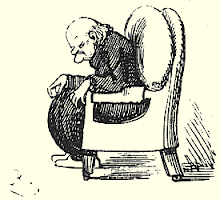Charles S. Houston died on Sunday, and his obituary appears in the New York Times today. The headline proclaims, "Charles S. Houston, Who Led a Failed Himalayan Climb, Dies at 96."
I don't know why I was drawn to this particular piece of news this morning. Maybe I like failures. No, I definitely like failures. There's something endearing about them, there's something unique and yet definitely common-- we're all failures, and yet, some of us are spectacular failures.
There's the guys who disintigrate in space ships and the ones who try to save rapidly descending airplanes, the ones who blow themselves up inside chemistry labs and the ones who froze to death while trying to find the Northwest Passage. There's the people who never got published or got applause or thank you cards. The downtrodden, the vainglorious, the attempted, not the achieved.
I like these guys.
I like them, I suppose, because I see a lot of myself in them, though you'd never catch me in the fucking Himalayas unless I was some explorer's hostage or sex-slave. I picture their tombstones chiseled with the pharse, "Well... he tried." I like people who try, and I damn well like them better than the ones who succeed. The ones who try and fail aren't tripping over their own egos, and that probably makes them inifintely better company at a dinner party-- though the ones who succeed might have cooler stories.
Charles Houston, though, had some cool stories of his own, even for a loser.
In 1953, while he was 3,000 feet away from the summit of K-2, one of the members of his expedition developed clots in his veins. His team wasted no time in trying to save the sick teammate, gingerly taking him down the mountain when, without warning, five of them fell down a dangerous ledge, while they clung for dear life to a rope, making an arduous slow climb up. Miraculously, everyone survived. The five teammates left the injured man for a little while to set up camp and, when they returned to the spot where they'd left him, he was gone. Houston later theorized that the sick individual threw himself off the mountain, knowing he was going to die anyway, to save the lives of his colleagues.
Houston never climbed a mountain again, but he dedicated his life to the pursuit of greater understanding of the body's physiological response to altitude, creating the International Hypoxia Symposium. Before he began mountaineering, he was a navy surgeon in World War II.
Reinhold Messner, who is often cited as the greatest mountaineer of all time, said that Houston's 1953 expedition was the most honorable expedition on record. "They failed in the most beautiful way you can imagine."
To fail beautifully-- what better legacy can there be than that? The poet William Blake once wrote, "The most sublime act is to set another before you." That, of course, is what Charles S. Houston and his crew did on that day in 1953, and that, probably, is what the young man with the blood clots did in return to save the lives of his fellow climbers. Sacrifice, an inherent respect and admiration for the precious nature of life, this is what makes us beautiful failures, if we can be lucky enough to be complimented in such a fashion in our own lives, and our own deaths.
God save the failures, especially the beautiful ones.
Lauren Soloy’s The Newest Gnome: A Quiet Adventure
9 months ago














That's beautiful! You've gotta love the failure though. Apart from the magnificent bastard, the best person to ever know is te guy who tanked horribly trying something he loved. They're so cool!
ReplyDeleteSee, that's much more than just failing to climb the Himalayas -- I'm not sure that even really counts as a "failure". Ok, so they didn't succeed in the climb, nor in saving their friend's life, but they tried. Maybe it's the trying that is more important than the succeeding?
ReplyDeleteThey could make a film of it. Except in Hollywood the vein-clot guy would live, and they'd reach the top.
Beautiful as usual Apron. There's something about failures and underdogs that I'm drawn to as well. Maybe because the ache of empathy for a failure is more powerful to me than the congratulations you feel for someone who succeeds.
ReplyDeleteOr maybe I can just relate to failures more easily.
:)
ReplyDeleteThat is all.
@Jay
ReplyDeleteyou said they didnt succeed in saving their friends life but they tried. Maybe it's the trying that is more important then the succeeding?
I bet the dead guy would beg to differ! :0)
I know what you mean but that DID strike me as a bit funny..
As you were.